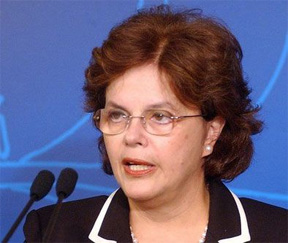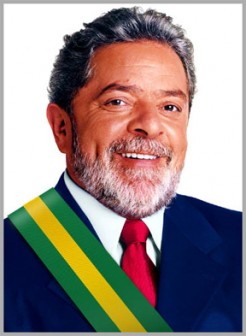RIO DE JANEIRO, (Reuters) – It lacks the fervor of the Arab Spring but the resignation of six ministers from Brazil’s government, the approval of transparency laws and the emergence of an angry middle class show that Latin America’s giant is stumbling toward cleaner government.

That should eventually make Brazil, which loses up to 2.3 percent of its annual economic output to corruption, more efficient in its public spending and a better place to do business.
In the short term, however, the effects are less predictable as center-left President Dilma Rousseff tries to harness public anger without provoking a rebellion in her old-school ruling coalition that could further delay crucial economic reforms.
In a year when Brazilians’ anger at endemic political corruption finally boiled over, Rousseff has appeared to stand on the right side of history, gaining from the impression that she has dealt firmly with errant ministers.
The perception that she is not tolerating business as usual in the capital Brasilia has lifted her approval ratings — and in some unexpected places. An opinion poll in September showed a remarkable geographic shift, with her highest rating of 57 percent coming in Brazil’s wealthier southern states — traditionally a weak region for her leftist Workers’ Party.
Thousands of protesters took to the streets in Brasilia and other major cities in September, angered by the corruption exposed by the scandals that have shaken Rousseff’s cabinet and at times threatened to spin out of her control.
“Just as in Chile, the Wall Street protests, and the so-called Arab Spring, social movements are realizing that there are ways of effecting change that don’t involve political parties or unions,” said Pedro Taques, a senator with the center-left PDT party who advocates tougher anti-graft laws.
It is doubtful how much Rousseff has been actively driving the putsch, which first claimed the scalp of her influential chief of staff Antonio Palocci in June and last month accounted for Sports Minister Orlando Silva after accusations that he took delivery of bags of cash in the ministry’s garage.

Most of the dirt against ministers has emerged first in Brazil’s fiercely competitive newspapers and magazines, sometimes fueled by leaks from coalition members upset at budget cuts announced by Rousseff at the start of the year.
Rousseff, while renowned as a no-nonsense technocrat, is part of a Workers’ Party that has a long history of graft.
Critics say corruption worsened under her popular predecessor Luiz Inacio Lula da Silva, who presided over a period of strong economic growth and took a more relaxed stance on ministerial spending in his latter years in office.
Claudio Weber Abramo, the president of corruption watchdog Transparency Brazil, said Rousseff’s government had clearly stepped up the battle against corruption compared to Lula.
He noted her decision last month to suspend for 30 days federal government payments to non-governmental groups, or NGOs, which have starred in several of this year’s scandals as recipients of public funds subsequently distributed as kickbacks. Such groups perform a wide range of functions, such as training workers, with the help of public funds.
“The government is taking a more vigorous approach in relation to its allies in ministries … It is saying to them: ‘We are watching you more closely’,” Abramo said.
DEEP ROOTS
Anti-graft groups are hailing several recent laws that have set the stage for cleaner politics, although Brazil still has a long way to go to curb the culture of impunity and the patronage-based party system at the heart of corruption.
Congress also passed a freedom of information act last month. Heralded as one of the world’s most far-reaching, it forces authorities to publish information on spending and to respond to citizen requests for information.





